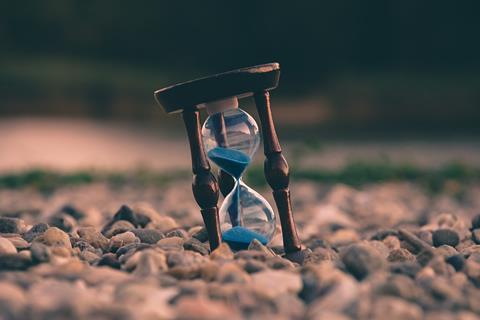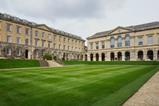Today’s society is busier than ever. But not making time to rest well may be more to do with priorities than we realise, says Gemma Simmonds

In 2009, entrepreneur Rob Parsons published a book describing people as money rich but time poor, working in high-earning jobs but without the time to enjoy the wealth they have accumulated. In The heart of success: making it in business without losing in life (Hodder & Stoughton) Parsons describes how pursuing professional success to ensure a secure and happy personal life can, ironically, often lead to having no personal life to speak of.
If you knew that this was the last day of your life, how would you spend it?
Jesus’ parable in Luke 12 tells of the rich fool who spends his life accumulating wealth only to die before he can enjoy it. Having no time to live meaningfully may not only be a question of financial and work pressure but also a question of what I imagine “the fullness of life”, as described in John 10:10, to be. What are my deepest longings, and can I allow myself space and time to nurture them? What permissions do I need to give myself to do this?
Indispensably busy
I am a religious sister, and for nearly 20 years helped to run an exhaustingly busy boarding school. One year, a priest giving our community a retreat continually repeated the mantra: “Remember, the graveyards are full of indispensable people!”
Religious people often school themselves into thinking that their own needs must always be subordinated to the needs of those they serve. Women in many cultures have also been socialised into thinking this, though it is a state of mind not always arising from gender or religion. Life circumstances can turn men, women - and even children - into full-time carers whose own needs habitually get buried in the pressure of seeing to those of others.
Busy parents can’t always be switching off and taking time to have a siesta, but we can often do a better job of caring for others if there has been some necessary self-care as well.
In the absence of extended family or a fully effective care system, people sometimes have few choices when faced with the responsibility of care within the home. In the workplace it can be similar, with major responsibilities often falling, without obvious support, on the shoulders of individuals. But time and space for reflection can pay dividends well beyond the expenditure of the time taken.
Important indulgences
The wise father of a friend of mine coined the phrase: “If you’re ‘too busy’, you’re too busy!” This may seem self-evident, but it’s worth asking ourselves how often, and why, we say to ourselves and others that we are too busy for something that seems an indulgence in comparison to the highly important tasks with which we fill our days. Are they so important? Would making another choice really be so indulgent?
It seems counter-intuitive that, in the safety instructions found in planes, in the case of an emergency, passengers with children are told to put on their own oxygen masks before attending to their child’s needs. Wouldn’t any loving parent or carer do it the other way round? In reality, we need to be properly resourced in order to become a reliable resource for others. At the end of his parable, Jesus has God asking the rich fool a killer question: “You fool! This very night your life is being demanded of you. And the things you have prepared, whose will they be?”’ (Luke 12:20–21, NRSV).
How to spend time
St Ignatius of Loyola asks a similarly pointed question in his Spiritual Exercises (Loyola Press): if you knew that this was the last day of your life, how would you wish to have spent it? Few of us would wish that we had spent more time filling in our tax returns, putting out the bins or de-worming the dog. Many of the passengers in the hijacked planes on 9/11 spent their final moments ringing their loved ones. Illness, financial constraints or circumstances beyond our control can curtail our life choices and the time available to fulfil our life dreams. But there are more ways of living the deeper life we long for than we perhaps realise.
Remember, the graveyards are full of indispensable people!
Jean-Pierre de Caussade, an 18th-century spiritual writer, wrote of the “sacrament of the present moment” in his book of the same name. A sacrament is a sign that makes real what it signifies. God lives in the eternal now. If we can allow ourselves time to live the present moment to the full, contemplating nature or experiencing the giftedness of this ‘now’, it can overwhelm us with the richness of the gift and the generosity of the giver. Sometimes, ‘wasting time with God’ can feel too much like wasting time, but we will always find that such moments are well spent.
Gemma’s new book, Dancing at the still point: retreat practices for everyday life (SPCK) is out now.




































